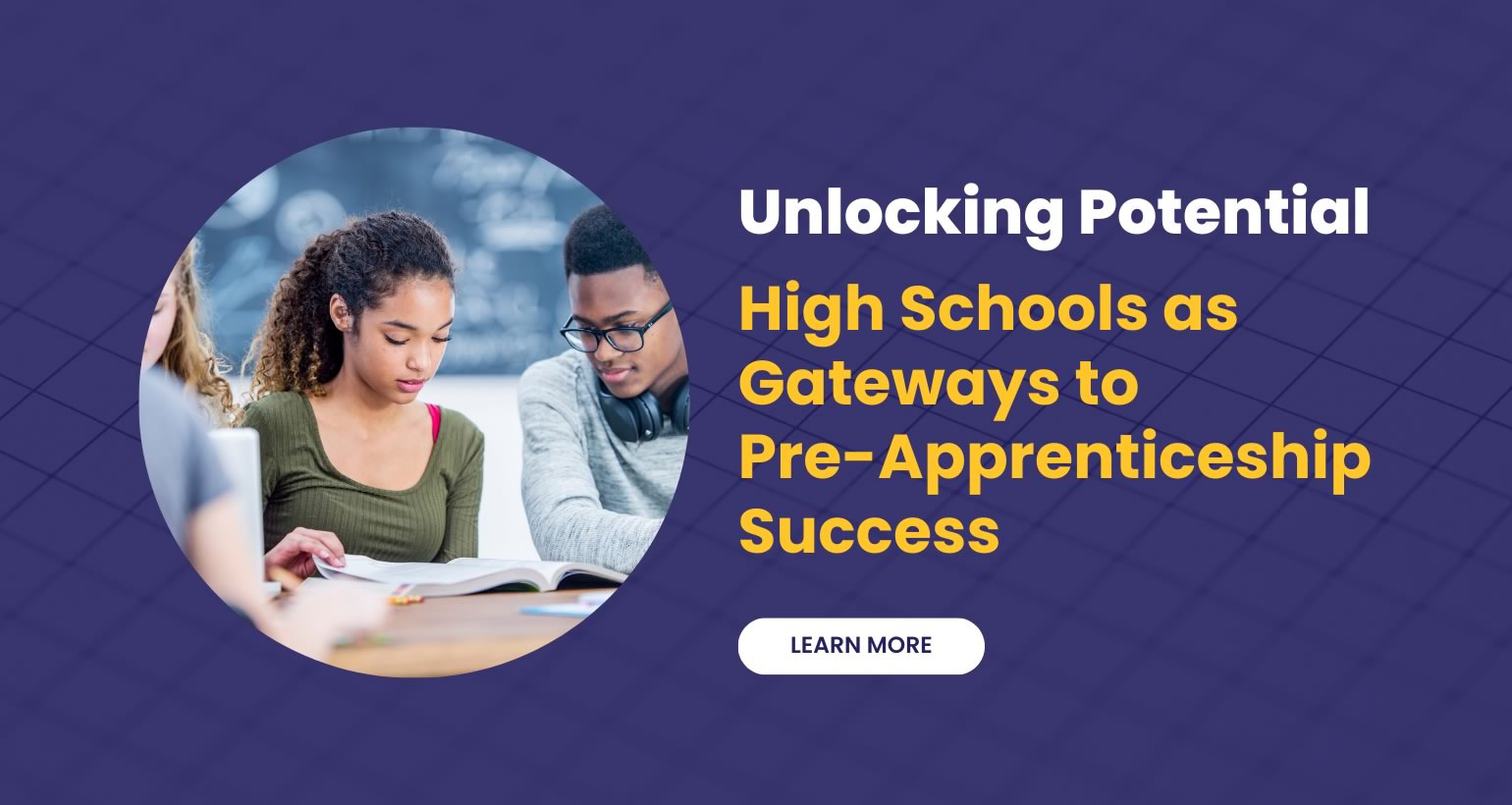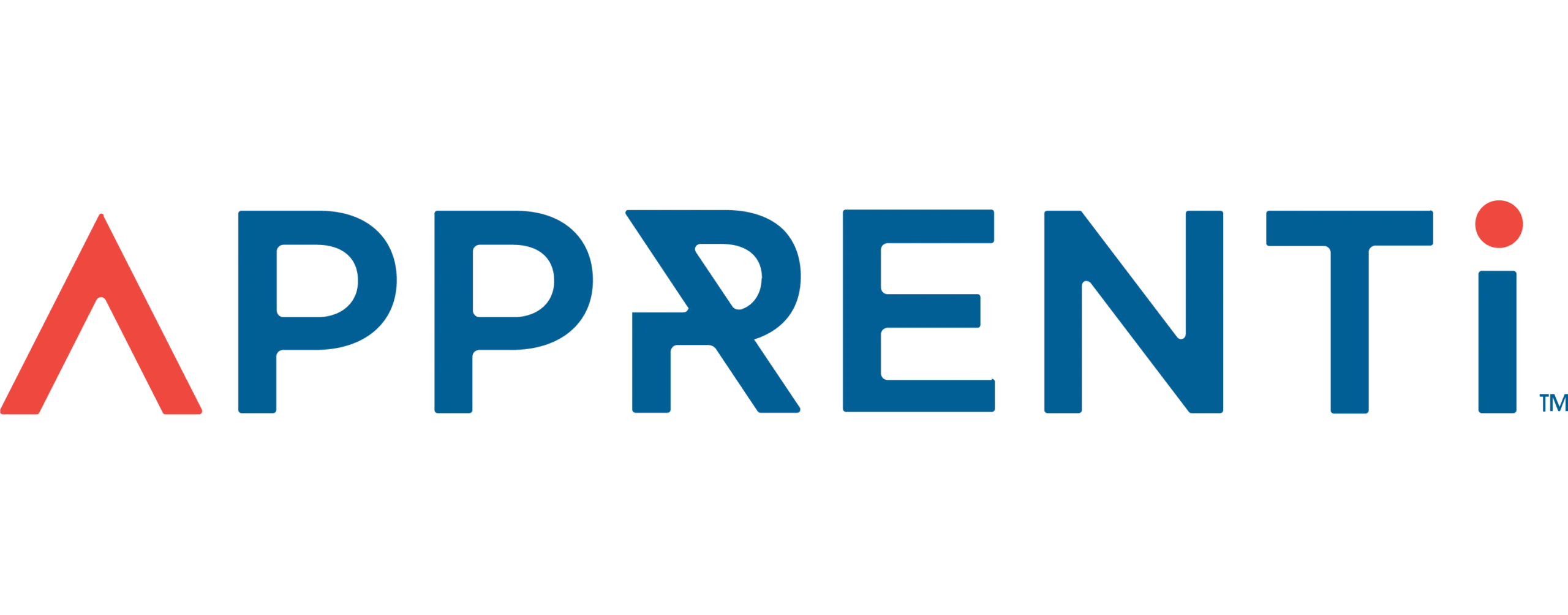The Florida apprenticeship model is special with the level of integration in the nation’s third largest school district (Miami-Dade) creating a model for other educational ecosystems.
If you’ve been following our blog and newsletters, you already know that we firmly believe that Pre-Apprenticeship programs are fantastic and make registered apprenticeships even more powerful.
At GoSprout we produce tools and support apprenticeship launchers for both audiences.
Want to Learn More About Your Registered Apprenticeship Opportunities?
BOOK A FREE CONSULTATION
You may also know that GoSprout Founder Carlos Vazquez has been partnering with educational institutions since before GoSprout as he is also the Founder of Miami Edtech, who has provided technology education in Florida generally and a significant number of Miami institutions in particular for a number of years.
One nuance about the Miami-Dade, Florida apprenticeship ecosystem is that the public education system has probably the highest degree of vertical integration between High School and Post-Secondary education benefits for those that join formal apprenticeship programs while completing their degrees.
We’ll explore how this works and how other states should take note of the Florida model.
What Is a Pre-Apprenticeship?
Think of a Pre-Apprenticeship as a feeder system into Registered Apprenticeships. Unlike a RAP, a graduate of a Pre-Apprenticeship program does not have a college degree. They are ready to start on their college degree while concurrently joining the RAP that their Pre-Apprenticeship was designed to feed.
Many public High Schools have joint enrollment with local public colleges. One step beyond AP classes, students may change campuses and actually take classes from college professors on college campuses before officially graduating from high school, at which point many programs facilitate a smooth transition into official enrollment in that state college/university.
Pre-Apprenticeships are a layer on top of that academic connectivity that provides job-based skill continuity as well. These programs also allow students to test the waters in industries and career paths much earlier than a traditional liberal arts education, where someone might not have a “real” job until they’ve actually left college entirely.
So How Is the Florida Apprenticeship Model Different?
Many states have scholarship programs and provide other types of tuition assistance to students who maintain GPA thresholds and similar. These are generally referred to as academic scholarships and have no requirement for on the job training or working within functioning companies are similar.
Georgia’s lottery-funded Hope Scholarship (full-ride, no tuition due) falls into this category and is cited as the reason that the University of Georgia has shot up in the rankings for test scores, graduate success, etc. whereas in the past it was known as a big football-crazy party school.
What Florida has done is give students an even better chance of successfully transitioning to a well-paid job by waiving tuition at all state colleges for apprentices in registered programs.
Why Is Florida’s Model Better?
Imagine a student gets a full-ride scholarship to a state school and knuckles down academically. But in a liberal arts or engineering track school, there is no requirement to try out actual career type work nor develop other skills necessary for success in a serious business environment.
Sure many students wait tables, babysit, and perhaps do work-studies to cover personal expenses but that’s not the same thing as being mentored by someone in your desired profession for a period of years.
Academic scholarship graduates have to land a serious job and learn the industry and how to work in a serious job at the same time, and many find they landed in the wrong place or are unable to keep their first job because they’re starting at a disadvantage with regards to expectations and work readiness.
The second advantage to Florida’s model is that apprentices provide real economic value to their employers. Sure they’re not as productive as seasoned employees, but they are tasked with real work on real client jobs and get compensated at significantly more than minimum wage.
So they are not hitting the workforce with an empty checking account and a barely serviceable form of transportation.
A Real-World Florida Integrated Apprenticeship Example
Miami EdTech is focused on high-tech education delivery: Software development, AR/VR, AI and other emerging technologies.
Miami-Dade Public Schools want to see as many pupils as possible get the post-secondary education they deserve, without accumulating massive debt.
Miami-Dade College is one of the largest public institutions in the nation and naturally receives enrollments from Miami-Dade High School graduates every year and wants to see their graduates land well-paid, stable jobs in the local community.
Leaders at all 3 stakeholders recognize how powerful it is to put students on a path to debt-free college degrees paired with real-world skills.
Why? Because these students can seamlessness integrate into well-paid jobs where their earnings then get funneled back into their families and communities (instead of interest payments on student debt).
So Miami-Dade College works with Miami-Dade Public Schools to identify the most in-demand jobs in the local community and sets up Pre-Apprenticeship programs in the local high schools as feeder programs into their registered apprenticeship programs.
Miami EdTech supplies the content for the AI Pre-Apprenticeship.
GoSprout supplies the delivery vehicle for both Pre-Apprenticeships and Registered Apprenticeships.
What happens? The whole system because an efficient machine for youth of any socio-economic background to start building in-demand skills and getting paid earlier, graduate debt-free, and transition right into jobs where they already know the industry, job function, and even the people there (their former mentors who are now coworkers and bosses).
Pre-Apprenticeship programs in the Miami area via both Miami-Dade College and Florida International University currently include:
- Cybersecurity
- Building Construction Trades
- Help Desk
- Teacher Assistant
- Hotel Associate
- Artificial Intelligence
And Florida is just getting started. Stay tuned as we update this list.
Can We Start a Pre-Apprenticeship Program in Our State?
Absolutely! While your state may not waive post-secondary tuition to enrolled apprentices, the benefits of Pre-Apprenticeship programs are remarkable and there is loads of support available.
Both state and federal apprenticeship grant money is available to support programs.
At GoSprout, we provide a plug-n-play cloud apprenticeship management software platform that makes it easy to deliver content to apprentices, track their progress, and stay compliant with state and federal regulators (required for grants). Our system also provides the coordination tools to keep Apprenticeship Sponsors, Employers, and RTI-Provider schools in sync.
While Miami EdTech can only provide course content in Florida, we’re happy to introduce you to the right partners in your region. Just ask!
Within GoSprout, we’re also growing our own Pre-Apprenticeship course catalog, which is available to all apprentices within our platform, regardless of which programs they are officially enrolled in.
What’s Next?
We see support growing for Pre-Apprenticeship programs nationally. The proliferation of RAPs will naturally spur part of this growth and stakeholders with influence are already pushing this model as well. Keep an eye on what the Department of Labor Apprenticeship Initiatives are as well as the recent Executive Order on Apprenticeships.
Here at GoSprout, we’re continuing to grow our community and resources. Around the corner, we’ll be releasing a new feature that facilitates faster grant identification and application for apprenticeship stakeholders.
So if you haven’t already joined our community, please do! We’d love to know what you’re up to or looking to accomplish and help you make it happen!















